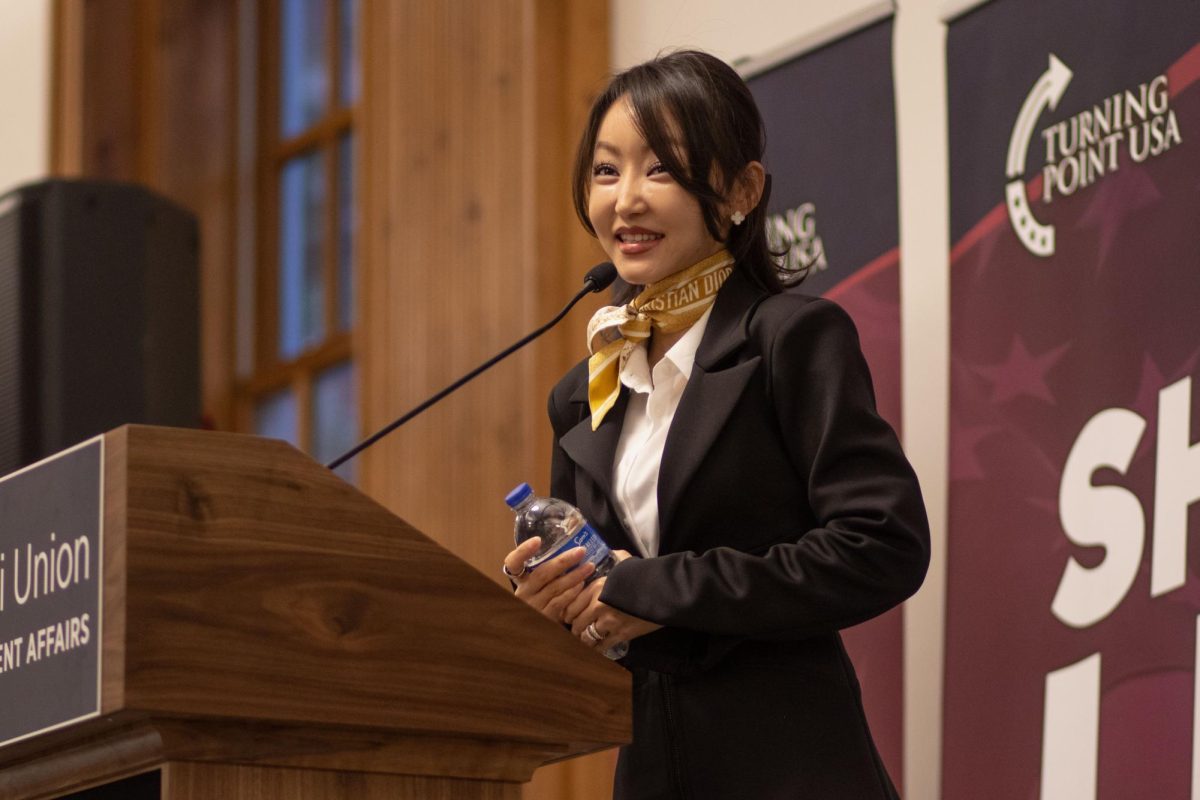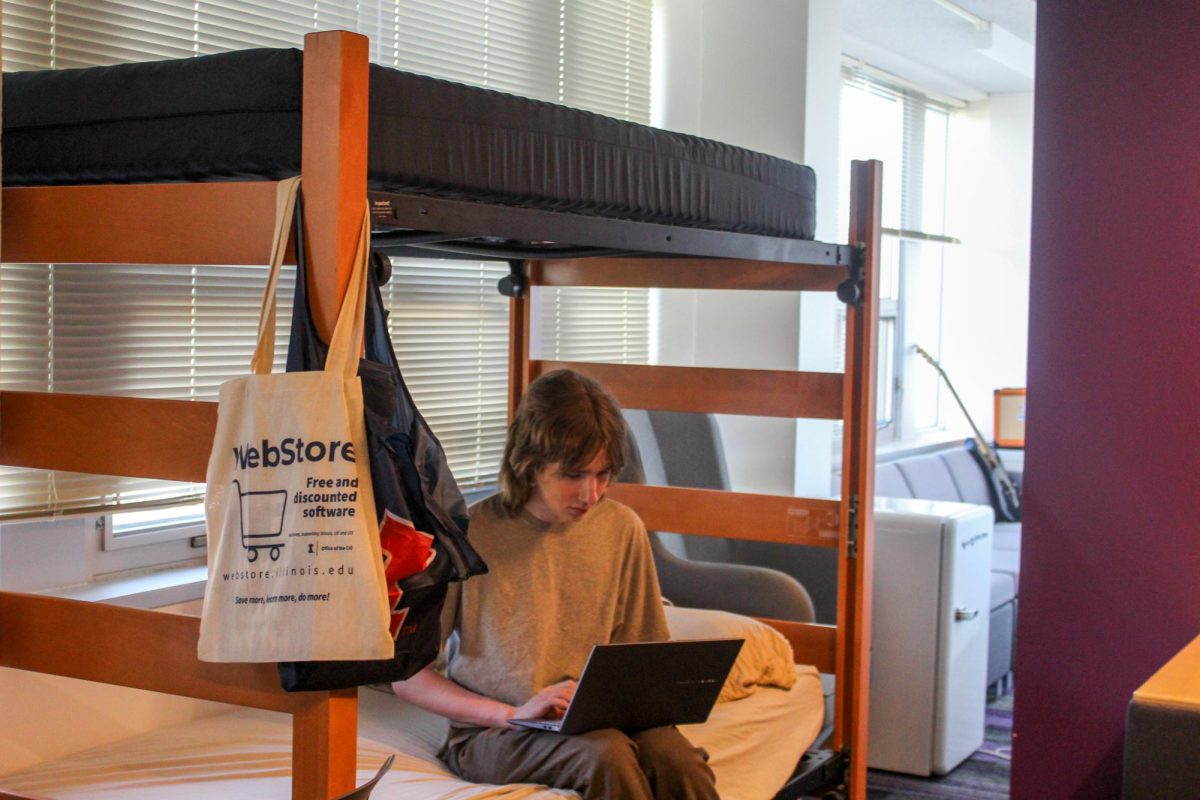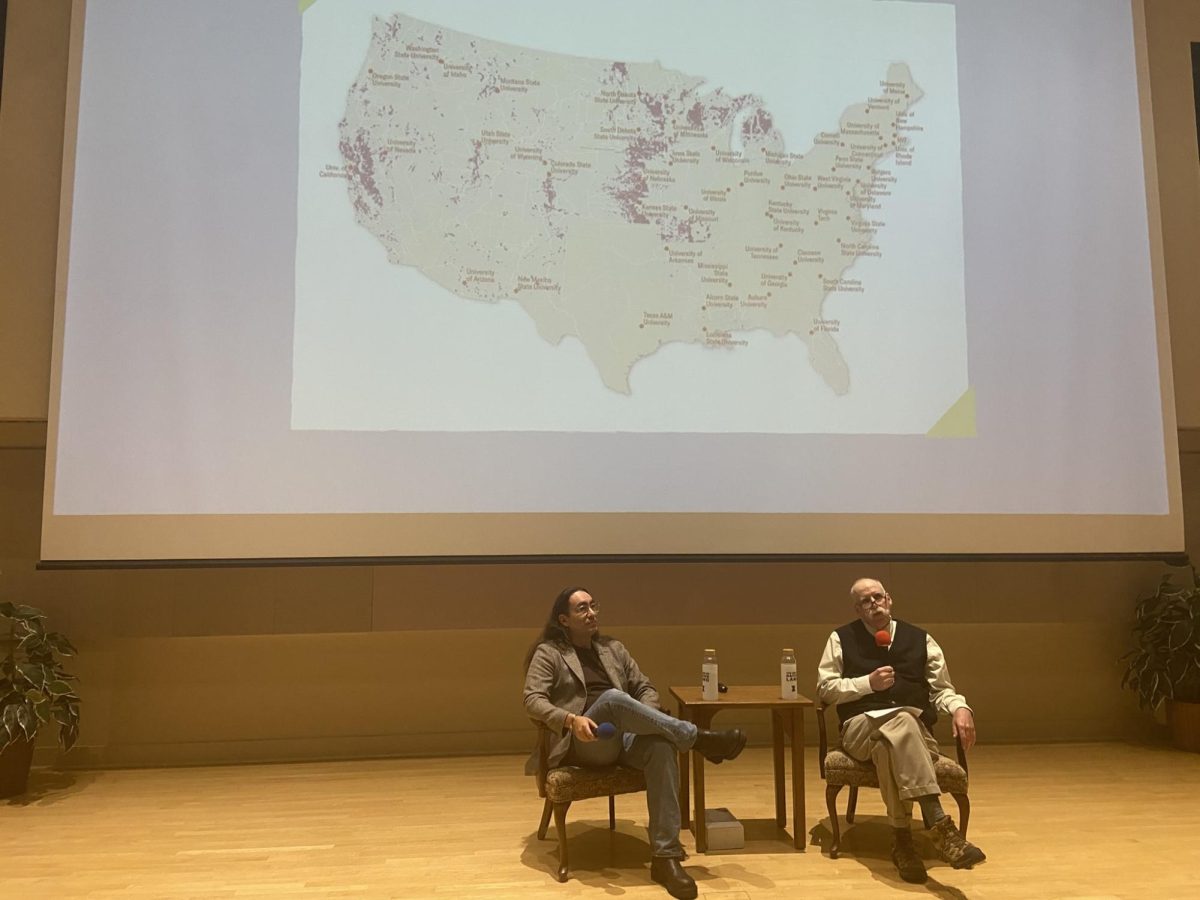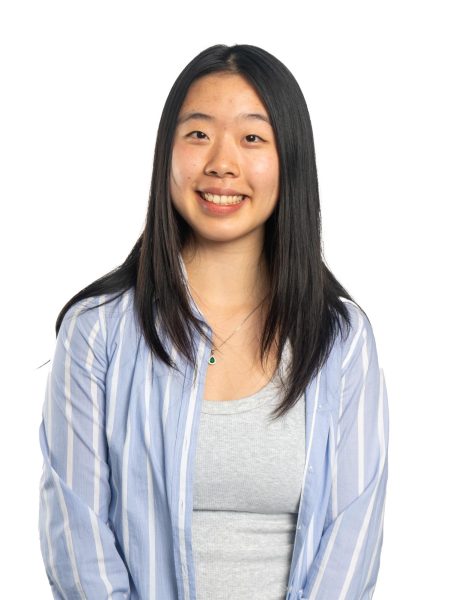North Korean defector and author Yeonmi Park spoke to a packed room at the Illini Union on Thursday night. Park was invited by the University’s Turning Point USA chapter, an organization that advocates for conservative ideals.
According to Ian Chang, president of Turning Point USA at UIUC and junior in LAS, Park’s story is a good middle-ground to promote the club because she is more of a human rights activist than a political figure.
“What’s important is that Yeonmi’s story is really precious because we do not really have that many people like Yeonmi doing her job,” Chang said. “And as an Asian-American myself, I think having a face like Yeonmi representing us is great.”
Park began her talk by recounting her childhood in North Korea, living under the leadership of the late Kim Jong Il. Under Kim’s dictatorship, Park discussed living under despotism, the struggle to find food and the Kim family’s cult of personality.
“There are millions of people dying from starvation … You know what Kim Jong Il said? ‘It’s easy to do socialism when there are less of them, so let them die,’” Park said. “That’s why in North Korea, starvation became a tool for the government to control the people. That’s why I was starving.”
Get The Daily Illini in your inbox!
Park added that North Koreans know little about the outside world, including concepts and media that are commonplace around the globe. One of the first movies she watched, “Titanic,” was from a smuggled DVD.
“North Korea is not (only a) place that lacks food, electricity, information, it also lacks a lot of words,” Park said. “The concept of love does not exist. We are not allowed to love anything else other than the dictator … When I was watching “Titanic,” I couldn’t believe it — why is this guy dying for a woman?”
Park harrowingly escaped to China in 2007 at 13, leaving behind the harsh living conditions she experienced in North Korea. At the time, the concept of freedom was unknown to her.
After escaping to China, Park was sold into sex slavery by traffickers. However, thanks to the help of Christian missionaries, she was reunited with her mother and they were granted asylum and citizenship in South Korea.
Park moved to New York in 2014 to work on her memoir, “In Order to Live,” and attend Columbia University. There, she said the rhetoric of her professors encouraged students to challenge capitalism and the status quo.
“I couldn’t believe it, what a nation that gives opportunity to a person like me, a former sex slave … What an amazing tolerant system they have,” Park said. “But when I got to Columbia, not even into my classes, at the orientation, my professors were asking me to stay angry. Stay outraged because America is evil.”
“(My professors) said the only solution to all of these problems is that we have to tear down the Constitution,” Park said. “We have to dismantle (the) American system and we have to rebuild the American system in the name of equity.”
Park cited one discussion with her privileged classmates at Columbia, where her peers pointed out the inequality between billionaires and homeless people as a result of capitalism.
“In North Korea, if you decide not to do anything, you live and you chill on the street? You know what happens? They’re going to capture you. They’re going to beat you,” Park said. “The fact that people have a right to be homeless, just on the street by themselves, is a sign of tolerance and (a) sign of freedom.”
Park ended her presentation by emphasizing the need to focus on human rights and thanked the audience for their attendance.
“Why are we not speaking for the voiceless of this world? People like North Koreans, sex slaves in China,” Park said. “I’m grateful that you took your time to come here and gave me this platform to share my personal story.”
During the Q&A session that followed, one attendee asked Park the validity of her story. According to a 2023 Washington Post investigation, there are many inconsistencies in Park’s narrative and scholars have disputed some of her claims about North Korea.
Akshat Mehrotra, junior in Engineering, said he attended Park’s talk because he had seen her podcasts before and was interested in what she had to say.
“I’ve watched a lot of podcasts before and she seemed like a very relevant individual on all of the podcasts, like the Joe Rogan podcast,” Mehrotra said.
Mehrotra, an international student from India, agreed with Park’s perspective on the freedoms in America.
“The things she said about freedom in America, I do see that,” Mehrotra said. “I spent 18 years of my life in India … You can’t say the stuff that we say here.”
Dash Kamriani Beard, junior in Engineering, also attended the talk and said he did not know it would have political themes.
“I thought it would be interesting just hearing a North Korean person talking about their experience. I didn’t really know anything going into the talk,” Beard said. “I learned it was a Turning Point USA talk pretty quickly.”
Beard said he thought Park drew false equivalence between North Korea and the United States, and that her underlying message had a political narrative to sell.
“I think it sounds like she was trying to sell something,” Beard said. “She was throwing a lot of false equivalencies in what she was saying. She was talking about how people in America are criticizing (the discrimination) we have in this country. She was like, ‘Oh, it’s not that bad compared to other things.’”
“You can want people in North Korea not to suffer while also wanting people to not be racist here and have affordable healthcare, those aren’t mutually exclusive,” Beard added.







